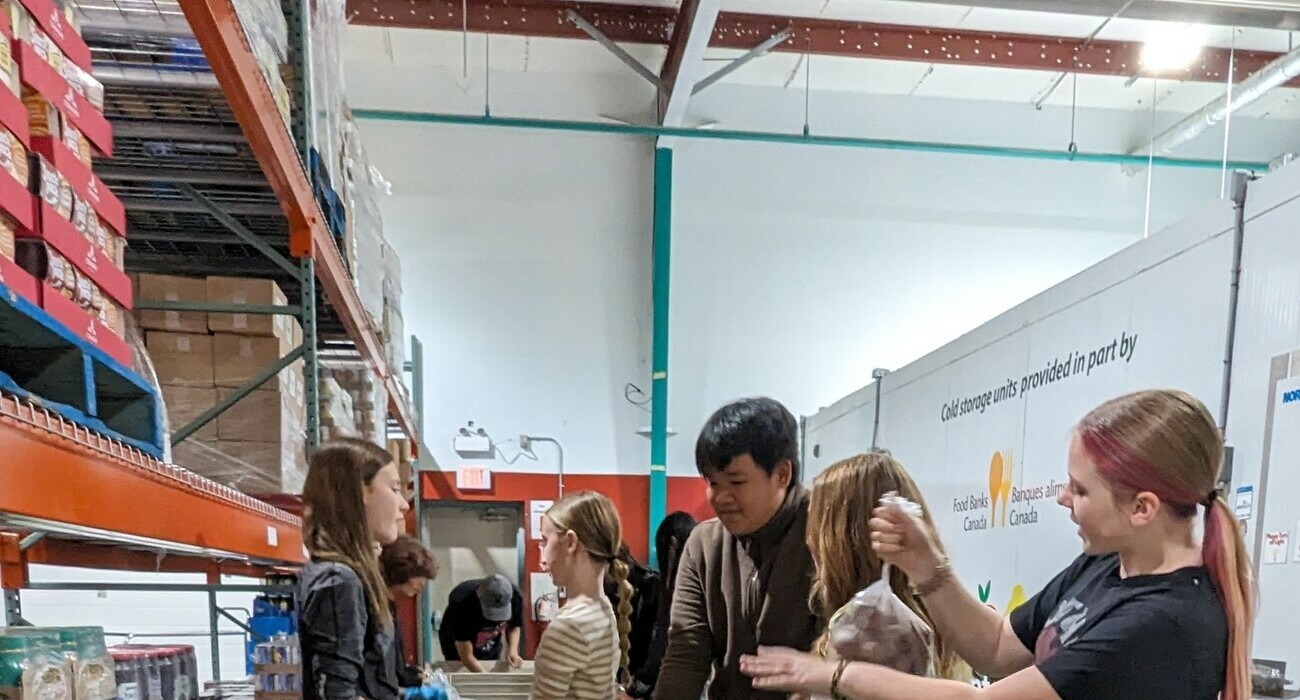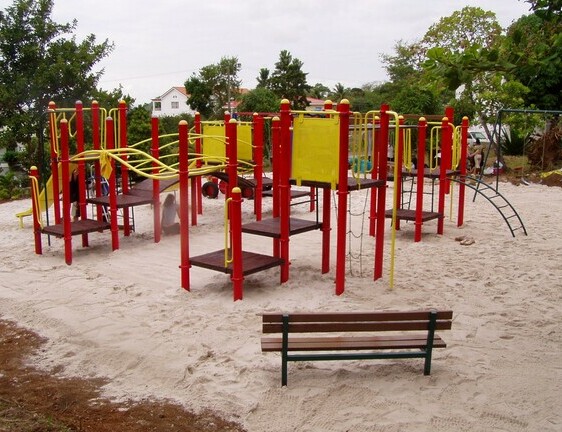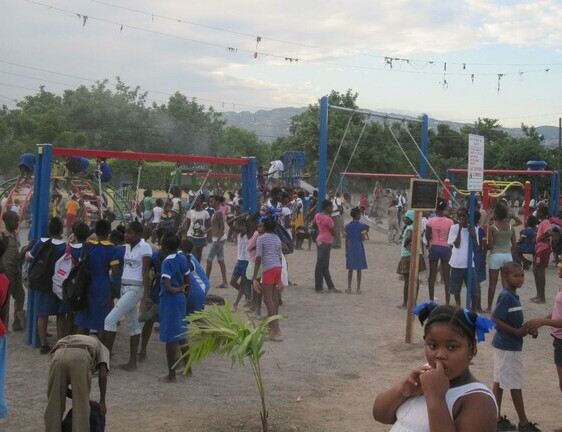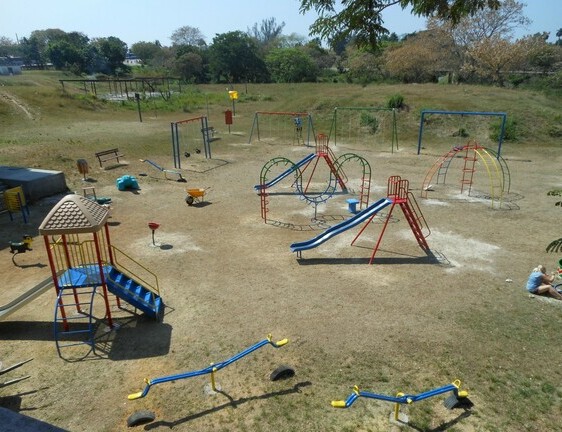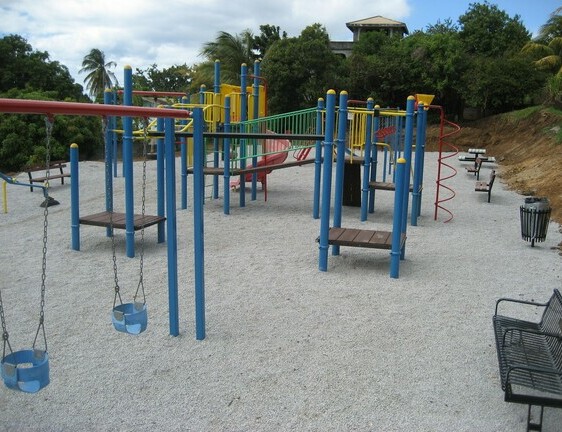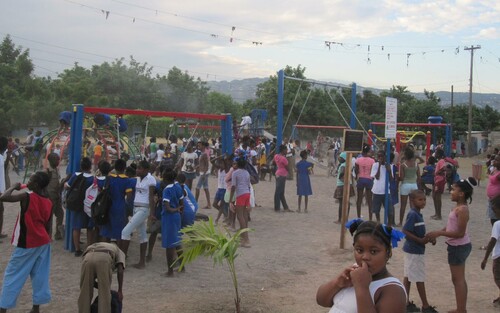
Students learn value of hard work and reward of giving to others
When 10 high school students from Master’s College leave for Trinidad and Tobago March 18, they know going in they’re not destined for a typical Caribbean beach vacation.
Much of their next 11 days will be devoted to physical labour, building a playground for children in Scarborough, the largest city on the Island of Tobago.
Grade 12 student Emma Jo Conlin will be joining a Master’s tradition dating back to 2000, when the first mission trip visited Belize. Since then more than 180 high school students have taken part in what’s become a Master’s College tradition.
“It’s in high demand,” says Conlin. “A lot of kids sign up for it so it has a pretty good reputation.”
Conlin will be following in the footsteps of her brother, Adam, who was selected to participate in two mission trips during his time at Master’s.
“He enjoyed them and I wanted to try to have a similar experience,” she says.
Teacher Bev Ness and his wife Gloria have been on every mission trip. He and Vice-Principal Susan McAllister attend to every detail, from negotiating deals on hotels and groceries, to ensuring a shipping container loaded with playground equipment, concrete mix, bicycles and other donations arrives in advance of the team.
The mission team has built playground structures in Belize, Tobago, Grenada, Costa Rica, Dominica, St. Lucia and Cuba. The playgrounds are donated by the City of Calgary and refurbished to like-new condition by volunteers. A Canadian Standards Association-certified inspector joins the group to ensure the installation is up to CSA standards for safety.
By the time the team is done, a community in the developing world has a $100,000-playground installed, and the Calgary students have an experience worth more than money, Ness says.
“They learn how to work,” Ness says. “They learn the names of the tools they’ll have to use, how to use them and how to look after those tools. They learn how to work with each other and work together.”
During the trip, Ness insists students “unplug” from mobile devices so they can fully engage with each other and people from the community they’re visiting. He expects they will be ambassadors for their faith, their school and Canada. On this trip, students intend to sing at a local church.
Conlin says she’s most looking forward to seeing the reaction of “the local kids” when their new playground is unveiled. “It’s going to be probably life changing,” she predicts.
Ness says the work can be gruelling with students digging holes by hand and shovel, without the luxury of power augers. Mornings start with a 5:30 a.m. wake-up call so the team can be at the construction site by 7 a.m. Work ends around 4 p.m. with students having a half-hour lunch and two 20-minute wellness breaks in the day. Adults on the team cook all the meals, and students help with the cleanup. There’s time for games after dinner, but it’s lights out at 8:30 p.m.
“I tell them this may be the hardest thing you’ll do in your whole life,” Ness says. “At the end, we’ll have students say ‘Can I come again next year?’ ”
Students apply for the privilege of joining a mission team, and a strong academic record is a prerequisite. They participate in a job interview, explaining what they’ll bring to the team, and what they expect to get out of the experience.
“I haven’t done a lot of interviews, so doing that was really helpful,” says Conlin.
Once accepted to the team, students begin fundraising, running bottle drives or offering hot lunch programs. In Conlin’s case, she also began strength training with help from her mother who is a Pilates instructor.
Ness says it’s moving to see the impact students make in the communities they visit. Local men, women and children are welcome to join the work crew, creating a sense of ownership over the project. It can change the character of the entire neighbourhood, and letters and meetings with national leaders attest to the positive difference the Master’s team makes.
For Ness, his reward is seeing the impact on his students.
“They get to see somebody else being blessed.”
The trip is made possible through the support of many partners, including: Coca Cola, which donates more than 700, one-litre bottles of water for drinking and cooking; Target Products Ltd., which donates 280 bags of concrete; and Bow Cycle and Sports, which donates 50 bicycles.
Master’s College is a Grade 7-12 school in Calgary serving about 280 students.

